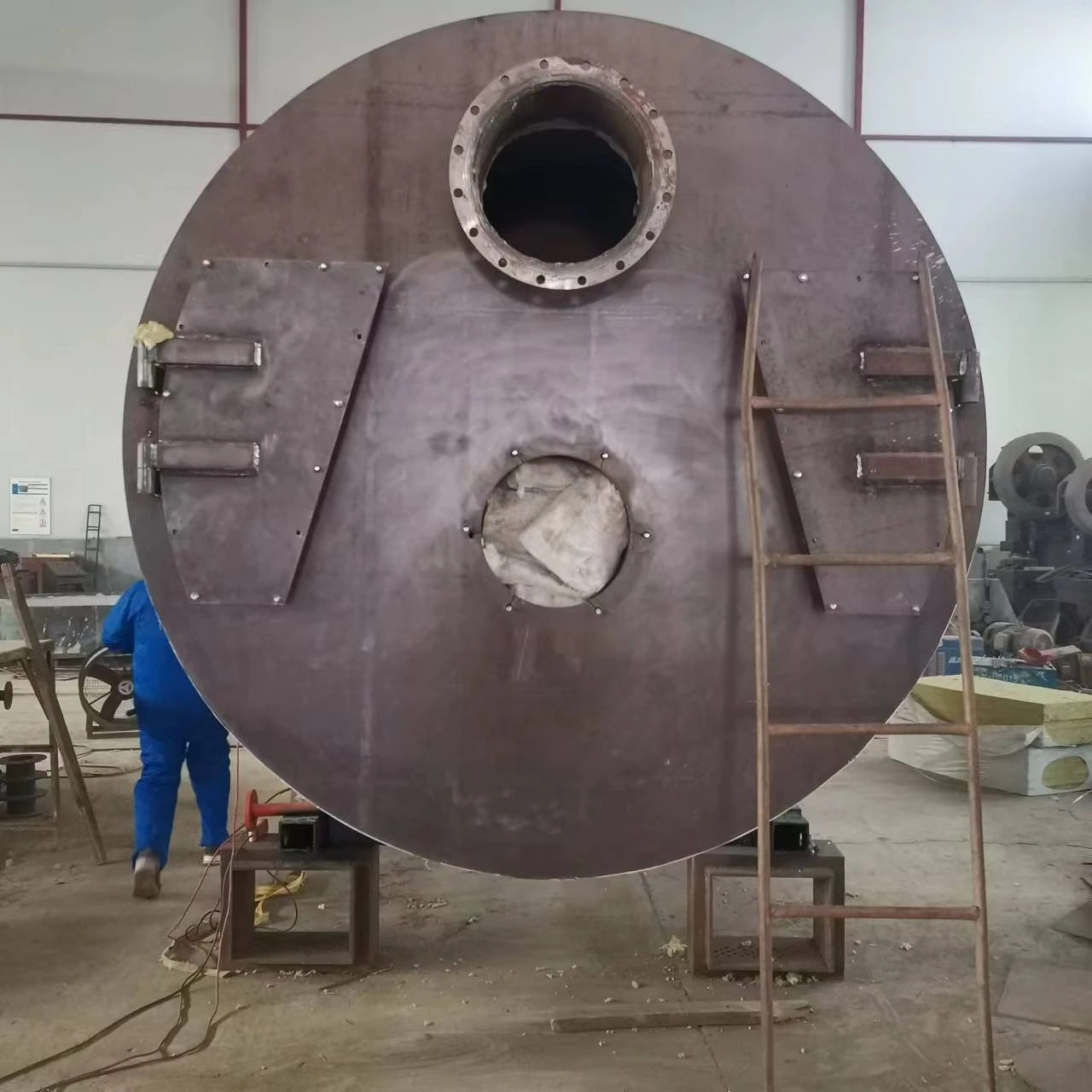
Nov . 09, 2024 17:08 Back to list
Thermal Oil Boiler Operation and Safety Guidelines for Efficient Heating Systems
Understanding Thermal Oil Boilers A Comprehensive Overview
Thermal oil boilers, also known as thermal fluid heaters, are specialized heating systems designed to transfer heat through a thermal oil medium rather than conventional water or steam methods. These boilers are increasingly popular across various industries, including manufacturing, petrochemical, food processing, and more, due to their efficiency and versatility in heating.
Working Principle of Thermal Oil Boilers
The operational principle of thermal oil boilers is relatively straightforward. They heat a thermal oil (often synthetic) in a closed loop system, wherein the oil absorbs heat from the combustion of fuel. This heated oil then circulates through various pipes to transfer the heat to the process equipment that requires heating. Importantly, this system allows for a higher temperature operation without the significant pressure associated with steam boilers, making it a safer option in many applications.
The thermal oil can reach temperatures as high as 300°C (572°F) and sometimes even higher without pressurization. This characteristic makes thermal oil boilers particularly advantageous for applications that require stable and consistent heating, particularly those that involve chemical processes or sensitive materials.
Advantages of Thermal Oil Boilers
One of the main advantages of thermal oil boilers is their energy efficiency. The heat transfer capabilities of thermal oil are superior when compared to water, allowing for reduced fuel consumption and lower operational costs. Furthermore, thermal oil systems can provide precise temperature control, which is crucial for many industrial processes.
Thermal oil boilers also offer flexibility in fuel choice. They can be powered by various energy sources, including natural gas, diesel, biomass, or even waste oils, which enables businesses to select fuel types that align with their economic and environmental goals.
Safety is another crucial advantage provided by thermal oil systems. The operational temperatures achieved without the correspondingly high pressures associated with steam systems significantly reduce the risks of explosions or system failures. Moreover, modern thermal oil boilers are designed with various safety features, including temperature control systems, pressure relief valves, and automatic shut-off mechanisms to further enhance safety.
Applications
The applications of thermal oil boilers are vast. They are commonly used in
thermal oil boiler pdf

2. Food Processing Thermal oil systems provide reliable heat for cooking, drying, and processing food products, ensuring food safety and quality.
3. Textile Manufacturing The textile industry utilizes thermal oil for processes like dyeing and drying fabric, as consistent and high heat is essential.
4. Petrochemical Sector Thermal oil is crucial for refining operations where high temperatures are necessary for various chemical reactions.
5. Pharmaceuticals In pharmaceuticals, maintaining exacting temperature conditions is vital for certain production processes, which thermal oil systems efficiently deliver.
Maintenance and Operation
To prolong the lifespan and efficiency of a thermal oil boiler, regular maintenance is essential. This includes monitoring the level and quality of the thermal oil, checking for leaks in the system, and ensuring all components, such as pumps and valves, are functioning correctly.
Operators should also conduct regular inspections and cleaning of the heat exchange surfaces to prevent fouling that can impair heat transfer efficiency. It’s also important to keep a close eye on the thermal oil's condition, monitoring for degradation or contamination, which can adversely affect performance.
Conclusion
Thermal oil boilers are an essential technology in numerous industries, offering high efficiency, safety, and versatility. They provide consistent heating for many applications where conventional steam boilers may not be suitable. As industries continue to evolve and prioritize efficiency and sustainability, the role of thermal oil boilers is likely to expand further, cementing their place as a critical component of modern industrial heating solutions. Understanding the functionality, advantages, and maintenance requirements of these systems is vital for optimizing their use and ensuring safety and efficiency in operations.
-
High-Efficiency Commercial Oil Fired Steam Boiler for Industry
NewsJul.30,2025
-
High-Efficiency Biomass Fired Thermal Oil Boiler Solutions
NewsJul.30,2025
-
High Efficiency Gas Fired Thermal Oil Boiler for Industrial Heating
NewsJul.29,2025
-
High-Efficiency Gas Fired Hot Water Boiler for Sale – Reliable & Affordable
NewsJul.29,2025
-
High Efficiency Biomass Fired Hot Water Boiler for Industrial and Commercial Use
NewsJul.29,2025
-
High-Efficiency Biomass Fired Hot Water Boiler for Industrial Use
NewsJul.28,2025
Related PRODUCTS






















